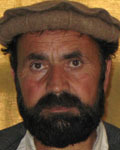An eight-month McClatchy investigation of the detention system created after the Sept. 11 terrorist attacks has found that the U.S. imprisoned innocent men, subjected them to abuse, stripped them of their legal rights and allowed Islamic militants to turn the prison camp at Guantanamo Bay, Cuba into a school for jihad.
America’s prison for terrorists often held the wrong men
T he militants crept up behind Mohammed Akhtiar as he squatted at the spigot to wash his hands before evening prayers at the Guantanamo Bay detention camp.
he militants crept up behind Mohammed Akhtiar as he squatted at the spigot to wash his hands before evening prayers at the Guantanamo Bay detention camp.
They shouted “Allahu Akbar” — God is great — as one of them hefted a metal mop squeezer into the air, slammed it into Akhtiar’s head and sent thick streams of blood running down his face.
Akhtiar was among the more than 770 terrorism suspects imprisoned at the U.S. naval base at Guantanamo Bay, Cuba, after the Sept. 11, 2001, terrorist attacks. They are the men the Bush administration described as “the worst of the worst.”
But Akhtiar was no terrorist. American troops had dragged him out of his Afghanistan home in 2003 and held him in Guantanamo for three years in the belief that he was an insurgent involved in rocket attacks on U.S. forces. The Islamic radicals in Guantanamo’s Camp Four who hissed “infidel” and spat at Akhtiar, however, knew something his captors didn’t: The U.S. government had the wrong guy.
“He was not an enemy of the government, he was a friend of the government,” a senior Afghan intelligence officer told McClatchy. Akhtiar was imprisoned at Guantanamo on the basis of false information that local anti-government insurgents fed to U.S. troops, he said.
An eight-month McClatchy investigation in 11 countries on three continents has found that Akhtiar was one of dozens of men — and, according to several officials, perhaps hundreds — whom the U.S. has wrongfully imprisoned in Afghanistan, Cuba and elsewhere on the basis of flimsy or fabricated evidence, old personal scores or bounty payments. [complete article]
Editor’s Comment — McClatchy Newspapers should be commended for taking on this Pulitzer-worthy project. Even so, the real turning point in American perceptions of Guantanamo may not come until the day that former detainees are allowed to testify in Congress. Only then, when they are offered the dignity of a public hearing that receives saturation media coverage, will we start to absorb the depth of the offense that Guantanamo has been and the breadth of the culpability that Americans share in acquiescing to the Bush administration’s suspension of the law and of human rights.

